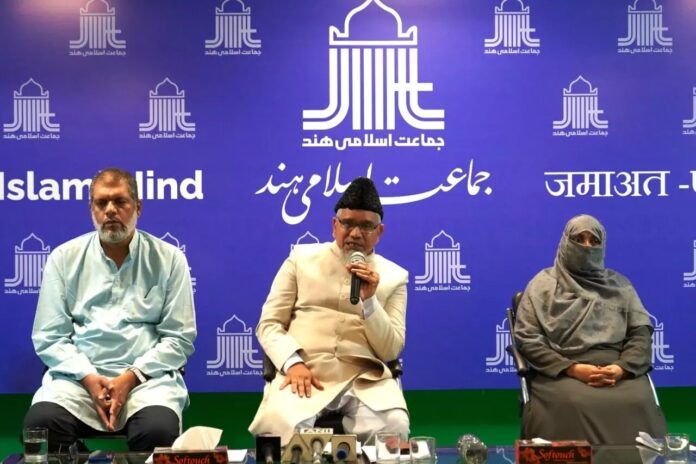Jamaat-e-Islami Hind in a press meet expresses grave concern over the extraordinary delay in delivering justice in India.The organisation write a press release On their official website.They Said , On Tuesday, the Supreme Court of India closed all proceedings arising out of the 1992 Babri Masjid demolition and 2002 riots in Gujarat. The apex court said these cases have now become infructuous with the passage of time. Regarding the contempt petition pertaining to the Babri Masjid demolition, the Supreme Court bench admitted that it was unfortunate that the matter was not taken up earlier. According to the government’s own admission in Parliament, over 4.70 crore cases are pending in various courts in the country, including 70,154 cases in the Supreme Court, 59 lakhs in the 25 High Courts of India, and 3.9 crore cases in the district and subordinate courts. Almost 75% of people languishing in Indian jails are undertrials booked for petty crimes. There are many reasons for this huge pendency including the tendency of ‘luxurious litigation” in which
litigants try to delay the judicial process in different ways. Moreover, there are many unfilled vacancies for judges. India lacks a robust alternative dispute resolution mechanism that may reduce the workload of the mainstream judiciary. An unfortunate aspect of the problem is that the government itself is a litigant in almost 50% of all pending cases. One suggestion to reduce pendency is to link the number of judicial courts with the potential workload and not merely with revenue divisions or some other administrative consideration. If we have one sessions court per 10 lakh population, then we will need 1,350 subordinate courts compared to the existing 670. Vacancies for the required additional, joint, and assistant judges should also be filled. Their number would need to be doubled to about 50,000. Other positions like court masters, readers, and ministerial staff are also required.
Jamaat-e-Islami Hind also expresses grave concern over the news that more than 600 farmers committed suicide in the Marathwada region of Maharashtra in the first 8 months of 2022. Excessive rains in that area impacted more than a lakh farmers and their produce was badly damaged. By the government’s own admission in the Lok Sabha, more than 17,000 farmers committed suicide in different parts of India between 2018 and 2020. As per the NCRB data, 5,763 farmers or cultivators committed suicide in 2018. That number increased to 5,957 in 2019 and was 5,579 in 2020. The states with the most farmer suicides In 2020 were Maharashtra, followed by Karnataka, Andhra Pradesh, Madhya Pradesh, and Chhattisgarh. According to a CNN report, almost 30 people commit suicide every day in the farming sector. The major reason for farmer’s suicide is the prevalence of loans from local money lenders with high-interest rates (up to 60%). In many cases, the farmers do not get the MSP. Small and marginal farmers cannot afford to buy the required chemicals, fertilizers, seeds, and equipment like tractors and submersible pumps. Jamaat-e-Islami Hind believes that farmers should be provided loans at zero interest and there should be a loan waiver scheme for deserving and marginalized farmers. The government should fulfill its promise of doubling farmers’ income and come out with a white paper on how it plans to solve India’s agrarian crisis.



